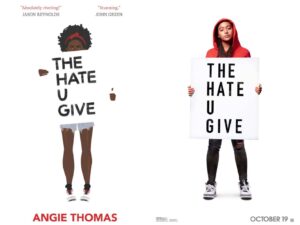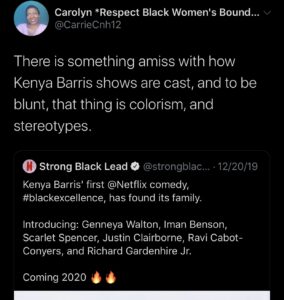
Colorism is a war that our community has fought since slavery. As a brown skin girl growing up, I never really paid much attention to the representation of black girls on television. As I got older, though, I began to realize that brown-skin women are underrepresented in Hollywood.
With the upcoming premiere of a new Netflix show called “#Blackaf,” I am beginning to question when will brown skin women get their time to shine in Hollywood?
Growing up watching Disney Channel and Nickelodeon, I rarely saw girls that looked like me. Only role models’ black girls had was Raven Symone from “That’s So Raven” and Keke Palmer from “True Jackson VP.”
As I became older and more aware of the world around me, I began to notice the way black girls were represented on TV: They weren’t.
“The Hate U Give” is a #1 New York Times Bestseller book written by Angie Thomas, a Jackson, MS native. The novel is about Starr Carter, a teenager who is stuck between two worlds- the black neighborhood in which she grew up and the wealthy white neighborhood in which she goes to school.
When it was announced that the novel was being adapted into a movie, I was excited for a movie by a black author to be adapted into the movie. When I saw the first trailer, I was very disappointed in the representation of the main character, Starr.
In the written novel, Starr is a dark-skin girl with curly natural hair. The movie, though, is starring Amandla Stenberg who is light skin.
“I wasn’t exactly thrilled,” Debra Cartwright, illustrator of the cover of “The Hate U Give,” said in an interview with New York Magazine in 2018. “Because of the colorism in Hollywood and everything. I was hoping it would be a very brown-skinned actress because there are so few opportunities in these big movies for darker-skinned actresses. I can’t fudge. That’s how I felt.”

The underrepresentation doesn’t stop there. Kenya Barris is the creator of hit shows including “Black-ish,” “Grown-ish,” and “Mixed-ish.” Barris has experienced a lot of criticism from his shows for not casting a lot of dark skin actors.
“There is something amiss with how Kenya Barris shows are cast, and to be blunt, that thing is colorism, and stereotypes,” A fan shared on Twitter about Barris’ cast selection for his shows.
His new show “#BlackAf,” does not help Barris’ case. For starters, the show is called “black af” but features majority actors and actresses of a lighter complexion.
I am honestly so confused. Barris has the opportunity to show off different shades and aspects of black people on his shows but chooses the opposite.
“I’m not gonna make up a fake family that genetically makes no sense for the sake of trying to fill quotas,” Barris said in his since-deleted tweets. “I LOVE MY PEOPLE. [and] everything I do reflects that love. But to cast people like some kind of skin color All-star game would actually do more harm than good.”
Now, Mr. Barris, no one said that you had to create a fake family. We ask that you represent ALL types of black people in your work, not just the ones “like your family”.
As one of the few black film executives in Hollywood, I personally hold Barris accountable for casting brown and black girls in his productions. Darker-skinned people, especially women, have been underrepresented since the beginning of film and tv. Barris has the power to change the narrative and promote color diversity, but he has yet to step up to the plate.
There are other black creatives in Hollywood that embrace all different shades of women in their films; Lena Waithe, Melina Matsoukas, Ava DuVernay, Ryan Coogler, Barry Jenkins and my favorite, Issa Rae. In series and movies such as “Insecure,” “Twenties,” “Queen and Slim,” and “The Photograph,” black women of all shades and backgrounds are given opportunities to shine in Hollywood.
“#BlackAf” premieres on Netflix on April 17. It may or may not be worth watching.